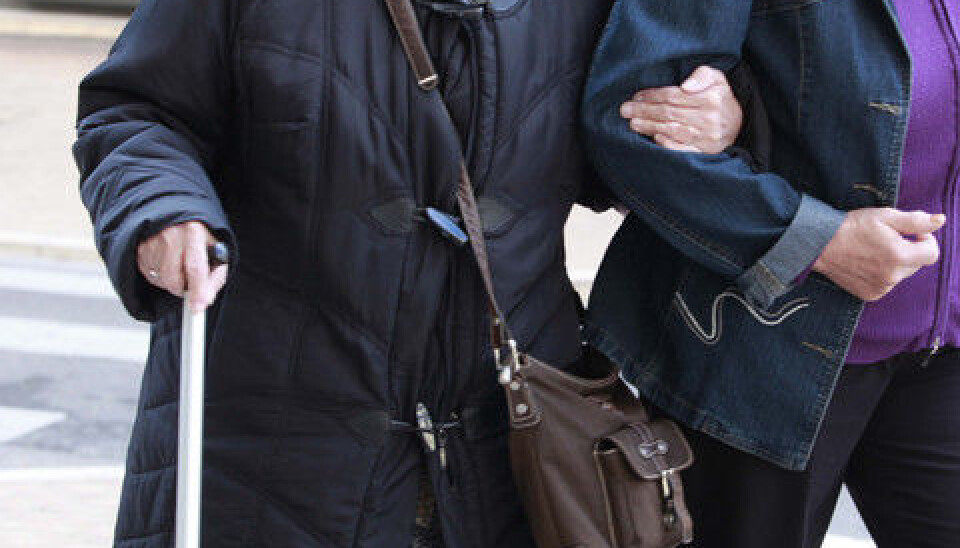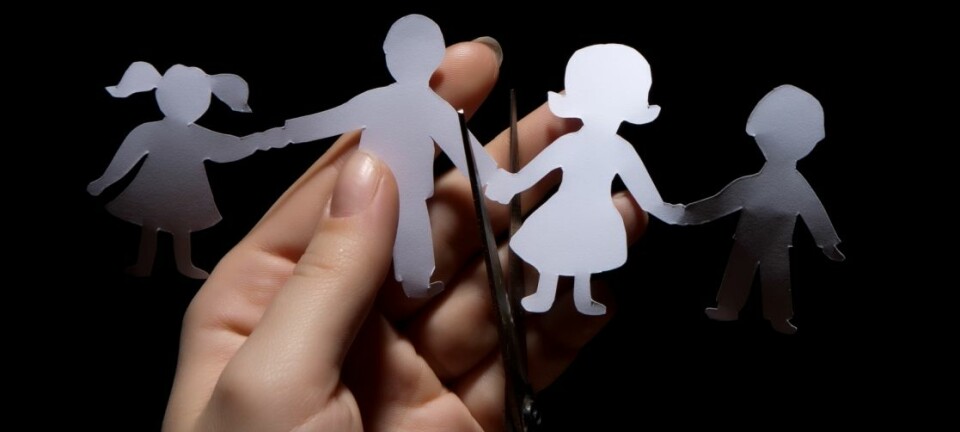
In Sweden, helping and caring are on the rise
With one of the oldest populations in the world, Sweden needs its citizens to reach out and help each other in informal, neighbourly ways. New research shows a dramatic rise in the number of Swedes who are doing exactly that.
An understanding of people's willingness to provide informal help and caregiving is of increasing interest to the industrialised world, where health care costs are expected to surge as populations age, due to low birth rates and improved life expectancy.
Sweden has one of the oldest populations in the world. In 2000, about 17 percent of the population was aged 65 and over, while in the same year the country became the first in the world to reach the five percent level for people aged 80 or over.
"In ten or 15 years, I think citizens here will have to accept larger responsibilities," says Magnus Jegermalm at Ersta Sköndal University College and Jönköping University, who led a study of informal help and caregiving in Sweden.
Helpfulness is on the rise
Jegermalm and his colleague, Eva Jeppsson Grassman, surveyed thousands of Swedes at four different times, from the early 1990s up to the late 2000s. Participants were asked if they regularly helped neighbours, family members, friends, co-workers or other people outside of their household, and also if they regularly helped people with whom they lived.

'Helping others' included activities such as transportation, gardening, housework, babysitting and nursing someone who is ill, but excluded volunteer work and organised activities.
The results were clear. In the 1990s about 30 percent of the population was engaged in such activities, while the tally was up to 50 percent in the 2000s.
There was also an increase in the amount of hours spent helping each other. In the 1990s, people spent an average of 12 hours on informal help or caregiving per month, while in the 2000s, the average had increased to 14 hours.
Jegermalm and Grassman also found an interesting shift in the recipients of help.
In the 1990s, two-thirds of the recipients of informal help and caregiving were relatives. In the 2000s, people outside of the family were recipients about half of the time.
Men and women were equally involved in helping people outside of the household, though men were more engaged in practical tasks, such as transportation, while women were more engaged in caregiving, such as nursing sick friends or family members.
The researchers also found that although elderly men and women often were recipients of informal help and caregiving, they were also very active in helping others.
A welfare state, but also a civil society?
Critics have argued that having a large welfare state will discourage informal help and caregiving, because citizens might reject their social responsibilities, thinking that it is the state's job to help people in need.
"Many politicians use this as an argument," says Jegermalm, adding that it is still a hot topic in Sweden.
His findings debunk the argument, as they show that helping and caring are widespread in Sweden, which has a large and nearly omnipresent welfare state. Even before the increase documented by Jegermalm, Swedes were helping each other in the 1990s at the relatively high rate of 30 percent.
Yet, the substantial increase seen in the 2000s might have something to do with structural changes in Sweden's welfare state.
A reduced welfare state
A severe financial crisis hit Sweden in the early 1990s and triggered cost-saving changes in the welfare system.
The big increase in informal help and caregiving came about in the years after, perhaps because there were gaps to fill.
"One could argue that the diminished welfare state has encouraged people to take up some responsibilities previously held by the state," says Jegermalm. "But the extensive enthusiasm is also about relations between people, morality, ethics and other principles that have little to do with the welfare state."
Asked if Swedes might step up their helping and caring even further in the coming years, Jegermalm is sceptical.
Due to the greying population the pressure to do more will be there, he says, but today's participation is already quite remarkable and might not be surpassed any time soon.
"We might have reached the breaking point," he says.







